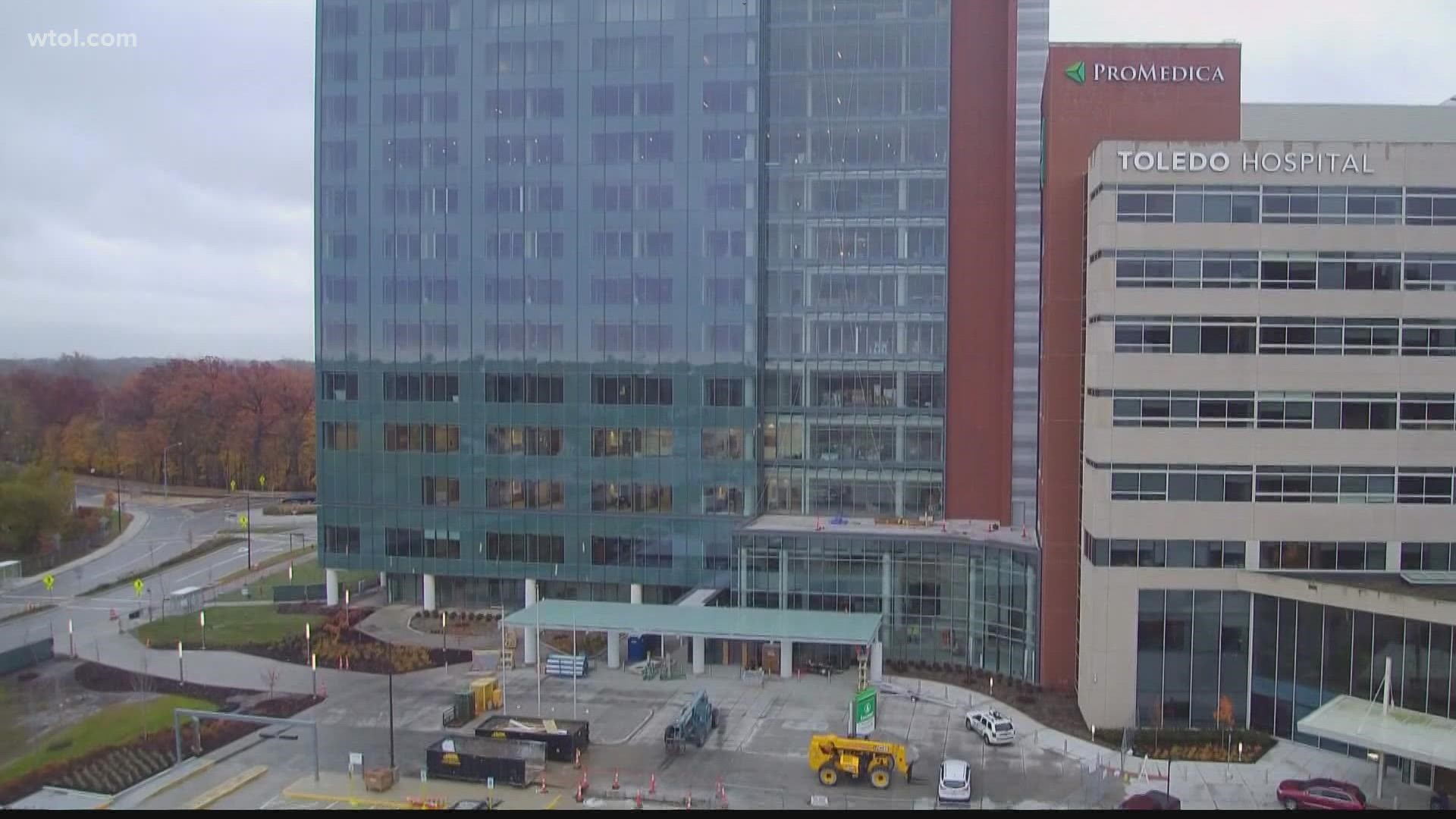TOLEDO, Ohio — The COVID-19 surge is leading to many factors playing a part in how our hospital systems are dealing with the numbers.
It can involve everything from limited hospital beds to a shortage in staffing.
This all started March 22 of 2020.
"My fellow Ohioans, we have not faced an enemy like we're facing today in 102 years," said Ohio Gov. Mike DeWine.
DeWine announced an order for all Ohioans to stay home, with the goal to flatten the curve, slow the spread of COVID-19, and lessen the stress on hospitals.
ProMedica is now adding clarity to its status.
"Seems like all the pressure that was building up has finally boiled over," said Dr. Brian Kaminski, vice president of quality and patient safety for ProMedica.
More than one year later, the virus is still here and hospitals in northwest Ohio and southeast Michigan are feeling the strain.
"Not only are our emergency rooms very busy, but our inpatient visits are very busy too," Dr. Kaminski said. "And then you combine that with general staffing shortages because all hospitals are struggling with staff right now."
He says there are several challenges for hospitals.
And the issue isn't just physical space or the number of beds.
"We have staffing challenges on a daily basis," Dr. Kaminski said.
Kaminski explained the doctors and nurses are stretched thin as COVID surges again.
"There are situations when we might have a very labor-intensive ICU patient, where it truly needs to be a one-on-one type of ratio," he said. "Where it's one nurse to one patient. And then it's those other acute areas, even in some of our rehab, those ratios can decrease to one in three and one in five."
The issues mean bringing in outside help from nurses when needed, including nurses represented by National Nurses United.
The largest nursing union in the U.S. published this article just two weeks ago.
It's not targeting ProMedica, or any hospital group, but it says there simply aren't enough nurses working at any given time to care for the number of patients and their severity of illness.
The union also calls for infection control to protect nurses and their patients.
And Dr. Kaminski says the COVID vaccine is a way for patients to avoid ending up in the hospital in the first place.
"Because every time somebody gets sick and requires a hospital bed, that absorbs resources," Dr. Kaminski said. "Not only is it unfortunate that they're sick and ill in the hospital, it just continues to add to that strain that all hospitals are experiencing right now."
The union also wants to make it clear that there is no nursing shortage.
Instead the group says the issue is a shortage of nurses willing to risk their licenses or the safety of their patients by working under what they call unsafe conditions.

